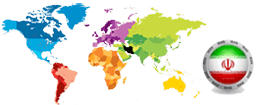" 8 Questions to Ask When Selecting an International Market for your Trade Show "
Consider the following scenario. A trade show has been wildly successful in the U.S. The organizers are looking to expand the concept and the brand to other countrie.They are about to begin an exhaustive search for the countries and regions that would be most receptive and conducive to hosting the show, i.e. there is an infrastructure of buyers, sellers, media, venues,suppliers and sponsors. Here are some of the questions to ask when vetting a new overseas market for an existing U.S. trade show.
1.Who are the potential buyers?
In many developing countries the government controls the natural resources (oil, gas, food products, minerals, etc.) and major industries and is also the primary purchaser of equipment and services. This can be great from a marketing perspective—one group of attendees to market to—but risky from a competitive perspective. It’s not uncommon for a government to host its own show after some time, removing support for the original show and eliminating the attendee base in one fell swoop. A more favorable scenario is one in which there is a diversified pool of buyers such that if one segment decides not to attend the show (initially or ever), the other buyer groups can make up the slack.
2. How many of the existing U.S. exhibitors have offices in the prospective country and would they
support the show?
Having a base of anchor exhibitors from the U.S. show that are already doing business in the target market is a plus. The most important question, however, is whether these companies are interested in having the show in their (overseas) back yard. One reason they wouldn’t want to support a new show is the existence of a competing show that they are already heavily invested in.
3. What is the degree of difficulty of importing products and equipment?
Depending on the market sector—foods, textiles, pharmaceuticals, weapons,plants, alcohol, for example—the import restrictions (and in some cases, export restrictions imposed by the U.S.) can make it difficult or expensive for exhibitors to display certain products. While it’s not impossible, the costs to import rise with the degree of
4. How modern is the convention center?
First-time international exhibitors (especially those from the U.S.) may be surprised at the conditions of convention centers in emerging markets. Often the structures are converted supermarkets, garages or warehouses. It’snot unusual for the facilities to be less than what American companies are accustomed to in terms of cleanliness, the state of repair, restroom facilities and Internet connectivity. Such conditions may not discount the use of a specific venue, since often it’s the only option available; however, U.S. organizers may want to set the expectations of U.S. companies when these situations arise.
5. What is the extent and structure of exhibitor and attendee marketing channels?
One of the most important aspects of a potential destination country is the existence of marketing and advertising channels for exhibitor and attendee recruitment. In developing countries, mail service can be unreliable. In less “connected” destinations, email can be impractical. Surprisingly,mobile advertising for this purpose could be a better option than it is in the U.S.—especially for audience promotion. Trade publications, if there are any (a well-developed trade publication network is a plus),can also be helpful for promoting the event to potential participants.
6. What is the political situation in the country?
The economic situation is a definite red flag for launching a new event in any destination. That’s not necessarily true for prospective show sites in politically compromised regions. In fact, despite political unrest in someareas, trade shows continue to operate and become critical to the well being of the country. One option is to draw exhibitors and attendees from a region (the Middle East, for example) by holding the show in a more stable location nearby (Dubai). The appropriate course of action for show organizers is to seek input from the American Embassy or Consulate, the local business community and security experts before making a decision.
7. Will the local government support the trade show?
In many countries, support from the local government ministries is absolutely critical to the success of the show. They can reduce the amount of bureaucratic red tape that organizers might encounter and help with any permits or customs authorizations that are required for temporarily importing goods for a trade show.
8. Are there trade associations or chambers of commerce in the country?
Besides having members that can exhibit in a new show, foreign trade associations have existing knowledge and understanding of the business climate within a specific market segment and can partner with U.S. organizations to help with the logistics of producing the event. Normally, they possess mailing lists of potential attendees and media.They also have relationships with government authorities and can be extremely helpful in facilitating introductions with decision-makers.The chance of success in launching a new show overseas is greatly increased by performing exhaustive due diligence.In addition to asking the infrastructure-type questions above, U.S. organizers should also research the business potential, cultural characteristics and competitive climate of the destination. A local partner or international trade show consultant can be extremely helpful in the process.difficulty, unless companies with the expertise and agent infrastructure are brought in to counsel exhibitors on what and how to ship.
Editor:
Michelle Bruno,
CMP, CEM
Tel: (801) 520-0797
michelle@brunogroup.com
Global View Notes is published by:
Rogers Worldwide
1550 E. Higgins Road, Suite 106
Elk Grove Village, IL 60007
Contact:
Jeanette Mucha, LCB
Director National Sales
Tel: (847) 806-9200
Mobile: (847) 970-8017
jmucha@rerogers.com
Past Articles:
You can find all our articles archived on our web
site.
www.rogersworldwide.com/content.asp?PageID=241
For a list of offices and agents of Roger Worldwide, visit:
http://rerogers.com/uploads/AGENTLIST2012.pdf



